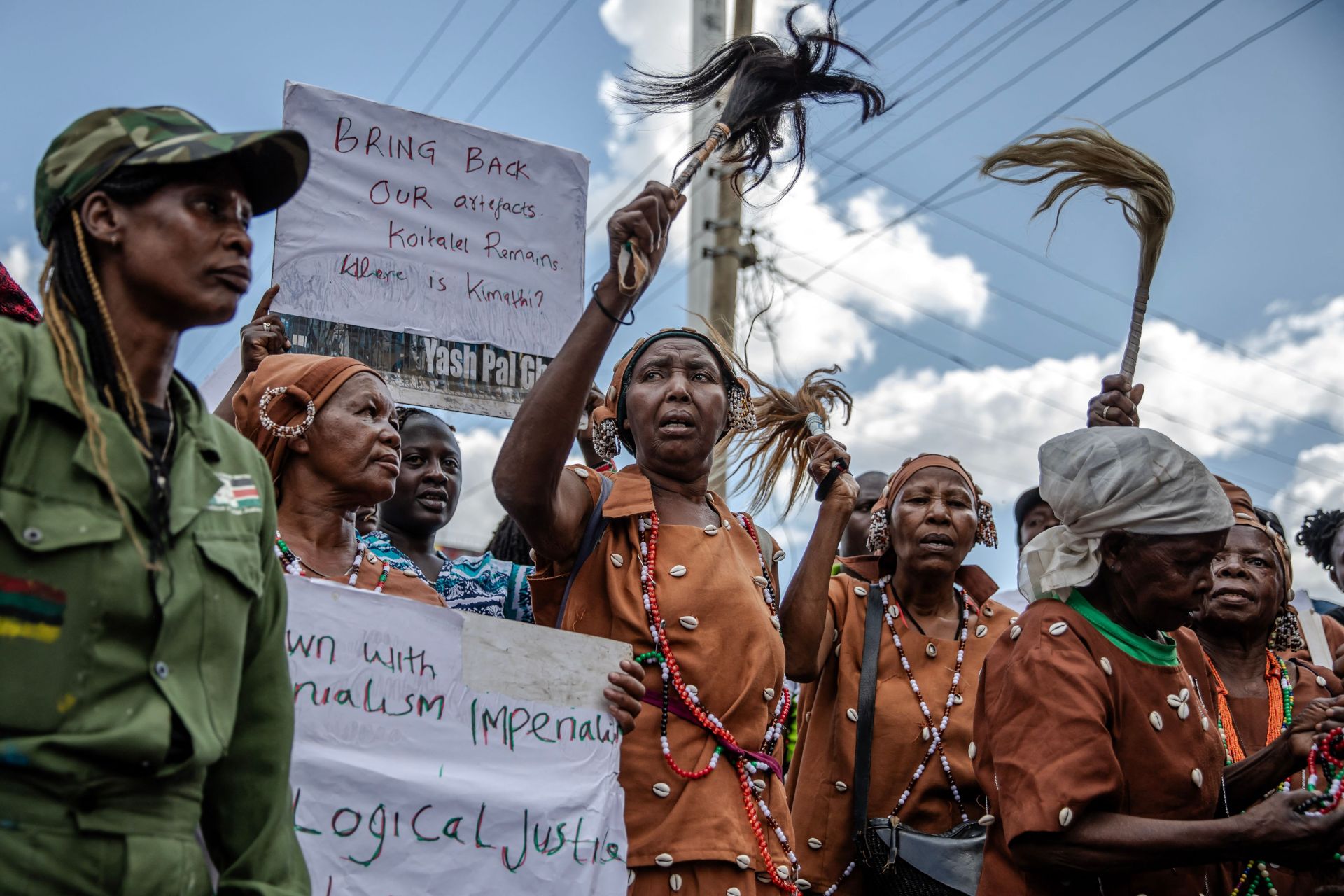Africa Insights is a podcast special from New Lines magazine exploring Africa’s unique stories from an African perspective.
In October 2023, during his inaugural visit to a Commonwealth nation as monarch, King Charles III conveyed his remorse to Kenyans for the violence inflicted by the British before the country gained independence.
Many elderly Kenyans were mistreated, raped and tortured by British colonial forces during the Mau Mau uprising (1951-1960). Kikuyu tribe members were held in detention camps that have been called “Britain’s gulag,” where they faced systematic torture and severe sexual assault.
However, during his recent visit Charles did not offer an apology. Such a step would take his country into “difficult legal territory,” said Neil Wigan, the British High Commissioner to Kenya, during the state visit.
“An apology shows that you have acknowledged and accepted that something very wrong was done,” Kenyan author and producer Salim Amin tells New Lines. “In terms of the country moving forward, for the Mau Mau fighters still alive, for them being apologized to would vindicate some of the things that happened to them.”
Charles’ acknowledgement follows a succession of European leaders who have recently spoken about their nations’ historical responsibilities for past abuses in their former colonies.
Denmark, France and the European Parliament have officially recognized past wrongs. Germany recently apologized to Tanzania two years after they also apologized for a genocide against the Herero and Nama tribes in Namibia.
There is undoubtedly a growing awareness of past abuses by the former colonial powers prompting them to come to terms with the past. Whether China and Russia’s growing influence on the continent is the driving factor, or societal pressures and demands for justice and reconciliation, still needs to be determined.
“It’s certainly not pure realpolitik behavior and it’s certainly not pure altruism either, and it isn’t some sort of deeply felt effort to apologize for past atrocities either,” Brooks Spector, a former U.S. diplomat in Africa and East Asia, tells New Lines.
Africa Insights is hosted by Kwangu Liwewe and produced by Patrick Hagan.


